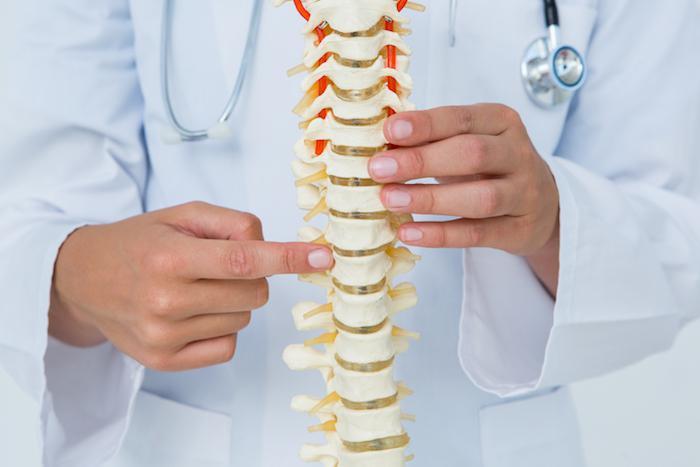Navigating a spinal diagnosis that suggests surgery is a winding road. At each turn, patients are confronted with a plethora of choices, from treatment options to understanding the benefits and risks involved. Spine disc replacement surgery, a fairly new procedure compared to traditional spinal fusion, presents promising perspectives but comes with its own complexities. For anyone considering this intervention, an informed assessment of the procedure’s implications is vital.
Unveiling the Procedure
Spine disc replacement surgery, also known as artificial disc replacement or total disc arthroplasty, offers an innovative resolution for individuals suffering from chronic back pain attributed to a variety of spinal conditions. Contrary to spinal fusion, which aims to ‘weld’ together problematic vertebrae, disc replacement surgery focuses on preserving the spine’s natural movement. Each of the procedures comes with distinct benefits and considerations, catapulting the patient into a realm of critical decision-making.
The Lumbar Odyssey: Reduced Pain and Improved Mobility
Perhaps the most sought-after benefit of spinal disc replacement is its potential for alleviating pain and enhancing the patient’s range of motion. By replicating the disc’s original function and often restoring the space between vertebrae, the artificial disc aims to contribute to a more comfortable daily experience. The impact on an individual’s life can be transformative, allowing for activities that once seemed distant due to relentless pain.
Enhancing Mobility
For those whose lives have been confined to pain’s constraints, the promise of increased flexibility through disc replacement surgery is a beacon of hope. The preservation of spinal motion can maintain a level of activity that is not always assured post-fusion, supporting a lifestyle that nurtures overall well-being.
Compromising the Core: Faster Recovery Sans Fusion
One of the crowning glories attributed to disc replacement surgery is its comparative recovery time. When pitted against the traditional spinal fusion, which involves a longer period of immobilization to allow the fused bones to heal, disc replacement can often enable a faster post-operative recovery, returning the patient to their routines more promptly.
Spine Safety: Preserving Spinal Motion and Flexibility
A distinctive feature of disc replacement surgery is its approach to maintaining spinal mobility. By introducing artificial discs that resemble the body’s natural design, the surgery aims to retain as much normal movement as possible. This preservation philosophy can contribute to an overall more harmonious relationship between the spine and its owner.
The Flex Factor
Flexible spines are crucial for day-to-day activities and injury prevention. Disc replacement can provide a substantial portion of this flexibility, which is especially valuable for people leading active lifestyles or those who require certain levels of agility for their work or recreation activities.
Keeping It Natural
Natural motion preservation with disc replacement can positively influence the adjacent discs and other spinal components over the long term. This is in stark contrast to fusion, which may lead to added stress on the adjacent discs, potentially necessitating further surgery down the line.
Balancing Acts: Risks and Complications
Of course, every rose has its thorns — and so it is with spine disc replacement surgery. Alongside the benefits, it’s essential to carefully consider the known risks and possible complications that patients may face. While advancements in medical technology have lessened some of these concerns, they remain an integral part of the surgery’s narrative.
Infection: The Quiet Menace
Infection following any surgical procedure is a concern, with spine disc replacement being no exception. The intricacies of spine surgery and the compromised state of the patient’s body post-operation create a vulnerable environment where infections can manifest and require diligent post-operative care and monitoring.
Nerve Damage: A Regrettable Outcome
The delicate nature of nerves along the spinal column leaves room for potential injury during disc replacement surgery, although this is a rare occurrence. Damage to these crucial tissues can result in various neurological symptoms or lengthy rehabilitative programs to manage and overcome the consequences.
The Hardware Hurdle: Device Failures
Artificial discs are crafted with durability in mind, but like any engineered product, they can malfunction. Device failures post-surgery may necessitate a revision operation, thus underscoring the importance of quality devices and the skill of the surgical team in their installation.
Coagulating Concerns: Blood Clots
Blood clots can formulate in the deep veins of the body, often in the legs, and are a severe potential complication following any major surgery. Their presence can lead to dangerous health risks if they dislodge and travel to other parts of the body.
The Fine Print: Surgical Candidacy and Precautions
Not everyone is a candidate for spine disc replacement surgery, and even those who are must meet certain pre-surgical prerequisites. While the benefits can be alluring, patient selection criteria are in place to maximize the procedure’s success and minimize potential risks.
The Personal Suitability Puzzle
Assessment of a patient’s suitability for disc replacement is a comprehensive process. Factors such as age, location and extent of spinal damage, and individual health status must be evaluated to ensure that the procedure is a fitting measure.
Pre-existing Conditions: Weighing the Odds
Certain health conditions, such as osteoporosis, may impact the success and durability of artificial discs. Therefore, it is essential for the medical team to be aware of any existing ailments that could influence the surgery and its aftermath.
Weighing on the Scales: Surgical Alternatives
For those considering disc replacement, it is critical to compare this option to the other alternatives available. While the procedure stands on its own merits, understanding how it stacks against non-surgical treatments and traditional fusion provides a comprehensive view.
Non-surgical Avenues
Physical therapy, medication management, and lifestyle modifications are all non-surgical paths that individuals with spinal issues commonly explore. These approaches deserve recognition for their role in potentially mitigating symptoms and postponing the need for surgery.
Fusion: The Gold Standard
Traditional spinal fusion has been a cornerstone of spinal health interventions for decades. Its success rates are well-documented, and it remains a preferred option for certain patient profiles, particularly when mobility at a specific vertebral level isn’t a primary concern.
In Consultation: Making an Informed Decision
The final and most crucial chapter in the discourse on spine disc replacement surgery is the importance of consultation. Patients contemplating this procedure must engage in open, informed discussions with their medical team before taking the next step.
The Physician’s Perspective
No one understands the complexities and nuances of spine health better than the medical professionals who dedicate their careers to it. Their expertise and guidance form a crucial aspect of the decision-making process.
Personal Considerations
Above all, a patient’s voice should be central to the discussion. Their comfort level with the procedure and their individual goals for recovery and long-term health must be acknowledged and addressed in consultations.
Spine disc replacement surgery emerges as a compelling option for many facing the daunting realities of spinal disorders. Its roster of benefits is matched by a comprehensive set of considerations that empower patients to make the most informed health decisions. In the end, this procedure, like any in the realm of medicine, relies on a partnership between the patient and a committed medical team to navigate the delicate balance of risks and rewards.






